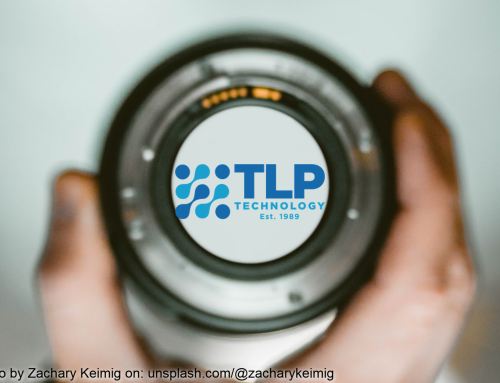Well it’s certainly been a busy past couple of months here at TLP Technology so we apologies for the delay in getting our latest news out to you on time. For this month we have combined the news for February and March 2022.
So without further ado.
Is Big Tech Decelerating The Speed Of Innovation
Sounds like something you couldn’t imagine big tech companies doing, however, they do, pretty much all the time. But unlike the earliest cosmological ancient Greek and ancient Indian theories of the universe, placing earth at the centre… and the many other theories that came thereafter to present day, which improve our understanding of life, big tech companies obviously do make vast improvements to their technology but not without taking several giant steps backward in doing so.
Do any of you remember a piece of software named Nuance by Visioneer (now known as Nuance Communications)? In the early 1990s Stanford laboratory had developed speech recognition technology for the US government called SRI, by 1994 the technology was developed in conjunction with ScanSoft who later merged with Nuance, but it wasn’t until the early 00s that the technology would flourish, as computers became more advanced with improved processing speeds and more memory, Nuance was able to vastly increase its vocabulary, and without breaks within its speech, subsequently everyone from Apple, Amazon, Google, Nokia, Microsoft, you name it wanted a piece of the pie, if I recollect correctly Nokia were using the software in a handful of their phones long before Apple introduced it to the iPhone 3GS in 2009.
But as we all know each of these companies now have their own more advanced versions of Nuance; Siri, Google Now, Alexa, Cortana and so on, but how did they get there? Well it wasn’t by doing the obvious thing by developing the Nuance software, nope, each company instead spent multi millions on setting up brand new departments, hiring hundreds of thousands of individuals to build their own speech recognition software, pretty much starting from scratch in the process, how counterintuitive.
And this is an on-going picture within the tech scene, big tech companies simply don’t like to share where they don’t have to, preferring to delay rapid advancements in technology just so that they wholly own that software.
The EU Takes China To The World Trade Organisation Over Infringements
No big surprises here as China is renowned for data theft, counterfeiting software among many things, and technology, and with it being so difficult and costly to prevent this outright theft and the sale of these counterfeit items, very few put Chinese companies to the challenge, one of the main reasons as to why it’s so difficult to prevent Chinese companies from patent infringements and why the Chinese government doesn’t look to improve the law and help to prevent this criminal activity is because the majority of these companies are part owned by the government, when a Chinese company grows to a certain size with a certain turnover the government wants a piece of it, anywhere up to 60% ownership in fact, and instead of creating a more level global playing field the Chinese Supreme Court imposed and anti-suit injunction law that forbids any company taking a case to court outside of the country, anyone who does try to do so will be liable for a daily fine of €130,000.
So you can see why it’s so difficult to bring a company to trial, you would literally have to take on the Chinese government, so, that is exactly what the EU is doing on behalf of European smartphone providers like Ericsson and Nokia as well as providing assistance to their Japanese partners Sharp.
Smartphone makers agreed on a global standard for telecommunications networks some years ago, whereby manufacturers licence their patents to others and if they cannot agree on a price, it is taken to court to settle on one. However Chinese companies have not just stolen these patents instead of paying for the licence, they are providing their services at half the price of their overseas competitors, giving you some idea of the effect of this move by the Chinese, after Ericsson lost it’s court case last year there licensing revenues dropped by over €100m per quarter.
Though this is a bold move by the EU I don’t believe it will necessarily create a positive outcome.
Online Privacy Protection For Life Changing Moments
A noble idea with a fantastic cause is being developed to help people in managing their privacy when life changing situations occur.
Professor Wendy Moncur, who heads Strathclyde University’s Computer and Information Sciences Department, realised that people whose lives had drastically changed due to illness, relationship breakup… didn’t necessarily have a means to protect their data online.
Wendy said:
“Managing privacy online is increasingly complicated. It’s possible to reveal a lot about ourselves to a huge and unseen audience, unless we’re experts at privacy settings and have time to spare. Many people tell us that their lives are ‘boring’ and that they are not worried about managing their privacy online, yet when big life changes happen, there are good reasons to manage online privacy.”
“For someone going through a relationship breakdown, previously enabled location-sharing with a partner may lead to stalking after a breakup if privacy settings are not revised. For someone newly diagnosed with cancer, they may not want everyone to know their news. At a time when there are far more important things to do, the internet demands that we become experts in privacy settings if we are to prevent that huge and unseen audience from finding out our deeply personal information.”
“It’s vital to understand people’s needs and vulnerabilities, so that we design cybersecure systems that are right for them. Everybody goes through difficult challenges in their lives, so this work is relevant to everyone. We’re delighted to be working with leading UK charities, and their service users, to build this understanding.”
The project which has received almost £3.5m in funding so far has been praised by many, and experts from a broad spectrum of related fields from a multitude of businesses, cybersecurity firms, criminology organisations, law firms, psychologists and universities are participating in the technology’s development.
Jeff Yan, a Professor at Strathclyde said:
“The importance of the research is reflected by the range of 26 core partners involved, spanning legal enforcement agencies, tech companies and leading UK charities.”
The Might Of The Intel Microchip
As the world wallows in the past when microchips were readily available for all new technology, Intel indulges in the future of the technology.
Last month at Morgan Stanley Investor conference, Intel’s Chip Engineer and CEO Pat Gelsinger held up the companies latest prototype to the audience, a paper thin, approximately 30cm in diameter disk laden with thousands up thousands of the companies latest memory chips that were manufactured using Intel’s new 18A process, the memory chips are 1.8 nanometers. However, though the company is able to manufacture the chips on a very small scale now, they won’t be ready for supply until at least 2025.
What does this mean for Intel? Well the company lost its lead in the marketplace over the past few years to both Taiwan Semiconductor Manufacturing Co. and Samsung but while the competition looked to improve on their current stock, Intel chose to go several steps further and build something from the ground up which would not just be far more powerful than that of the competitions, it will not have any lacklustre after 10 years of high intensity use and has multiple application uses, for the first time Intel will not just be competing within the computer market but that of cars, phones, graphic cards, smart devices and a whole lot more, potentially cementing them as the leader within the market once more.
Might be time to buy some shares in Intel!?
Do You Suffer From Battery Anxiety?
Well fear not! Oppo, one of China’s largest phone makers after OnePlus, Realme and Vivo, demonstrated its latest phone technology ‘super fast charging’ at the Mobile World Congress in Barcelona at the beginning of this month.
The new tech takes just 9 minutes to fully charge the battery from empty. Though fast charging certainly isn’t a new thing with Oppo and Xiaomi showing off the ability to fast charge phones in the past, were merely publicity stunts to gain exposure to the brand, but this time things are very different.
The obvious problems with super fast charging up until now is overheating the battery and causing damage to the casing which leads to bloated batteries and fires, the new tech called SuperVooc charging tech is said to be able to draw power rapidly without creating much heat and without causing any damage to the battery.
Of course this too could be hearsay just to gain further exposure, though it is also rumoured that Apple, Samsung and others have also heavily invested in the development of very similar charging technologies that they may showcase later this year.















